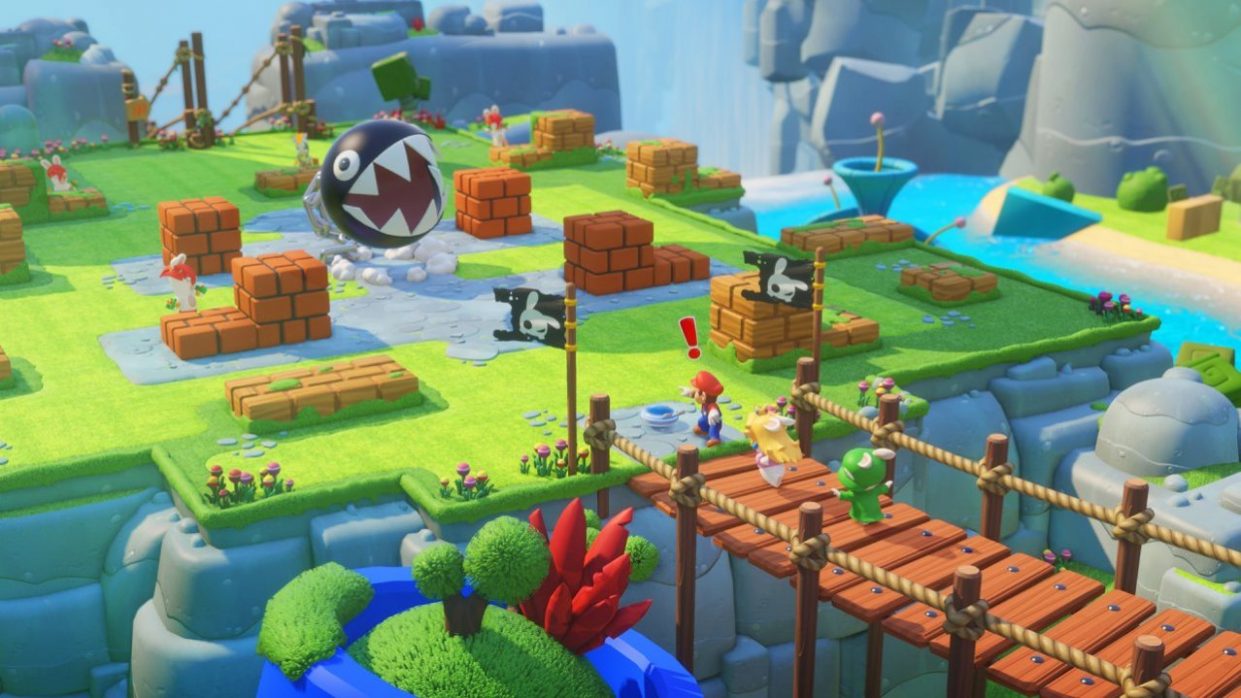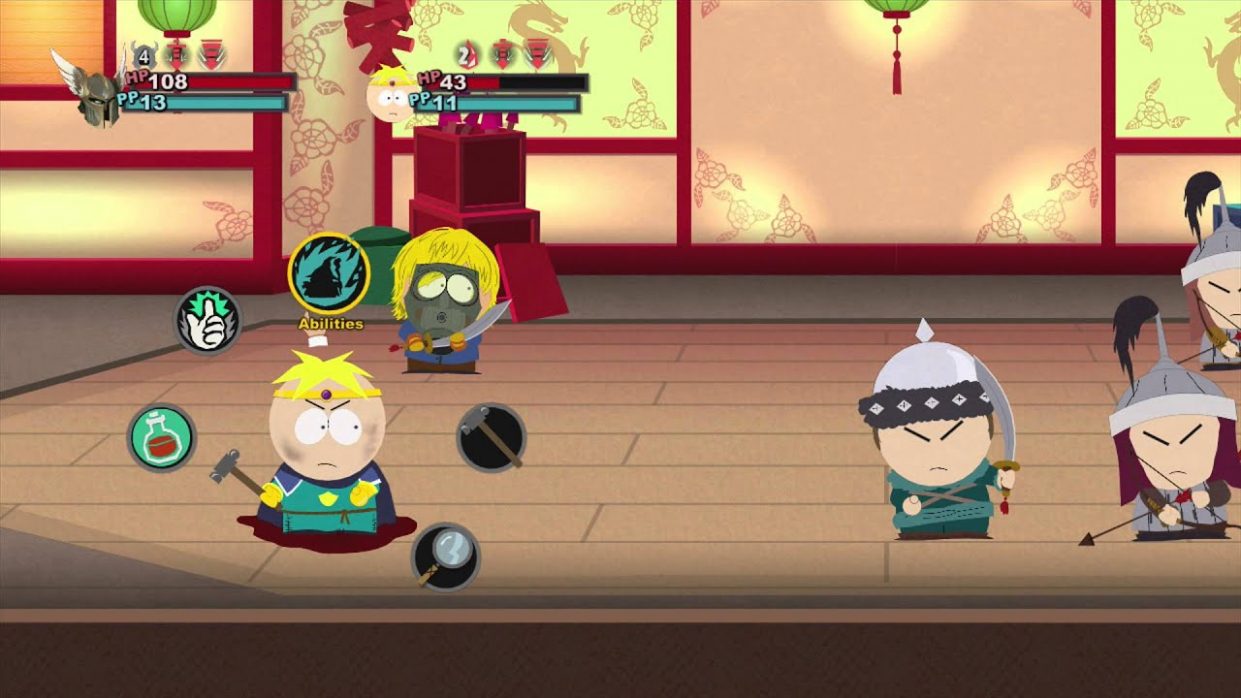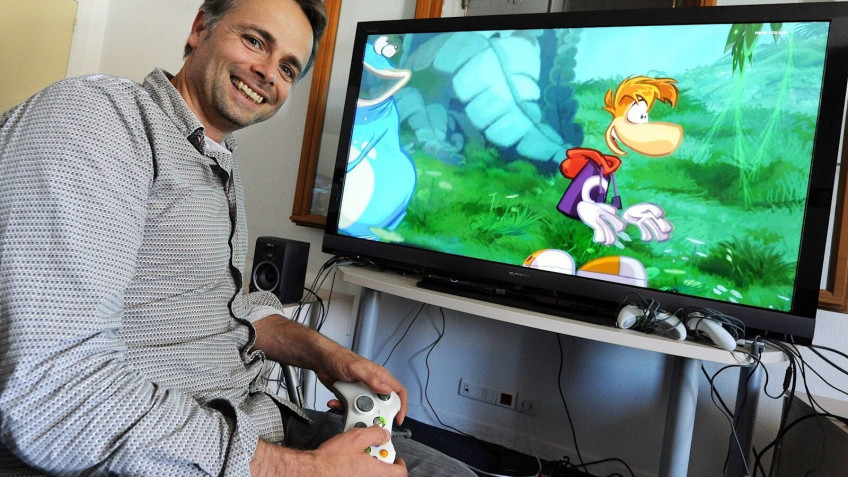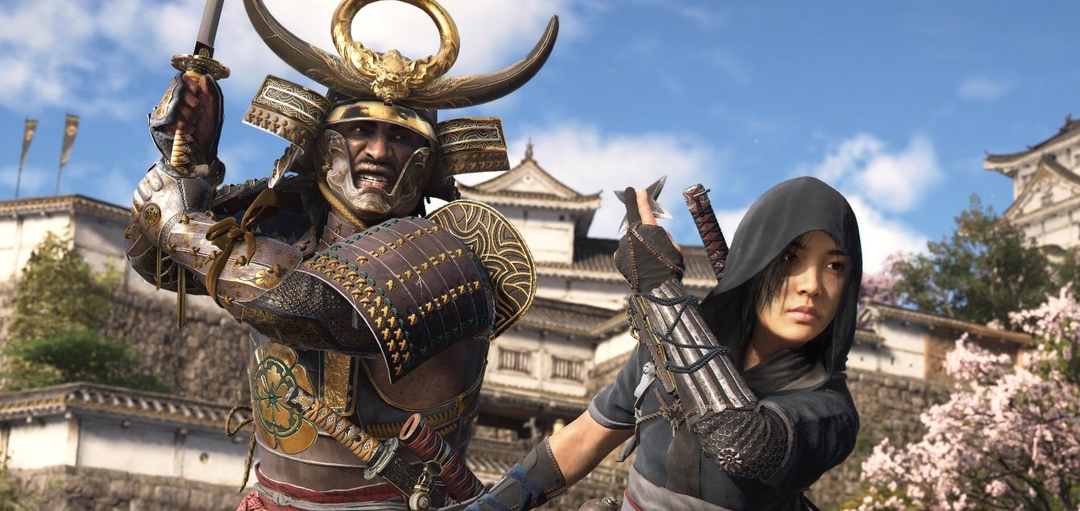Let’s start with a little interaction. Right now I encourage every reader to hit the comments section with the question: “What is your first Ubisoft game?” Mine, for example, the second part of Rayman from PlayStation.
Why am I asking this? Prove the thesis from the title – Ubisoft is a company whose games are loved by… All. In ancient times, approximately every second release was awaited, and in 2011, every first one threw quotes from Vaas from Far Cry 3.
But now it’s 2024, and we are watching how the French industry giant is being trashed by gamers, desperately defended by gamers, and about to be bought out by the Chinese. What happened? Let’s figure it out together.
Briefly:
Times of bold ideas and experiments
Meet Ubisoft’s debut game. It’s called Zombi and it had a remake on Nintendo Wii U in 2012.
So let’s start with the basics. The French company Ubisoft was founded in 1986. At its origins are five people with the surname Guillemot. They still hold their positions to this day; in fact, the company is a rare example of a family business in the gaming industry. This is an important fact to remember for the future.
The second significant name in the history of the company is Michel Ancel. Visionary, game designer and creator of Reiman from the game of the same name. For now, that’s all you need to know about him. But I also advise you to remember this name.
 The third part of Rayman is still considered one of the best 3D platformers.
The third part of Rayman is still considered one of the best 3D platformers.
The company published and developed games of varying degrees of quality throughout the 90s, but truly blossomed in the 2000s.
It was then that gamers saw a fresh look at the Prince of Persia franchise, which changed radically every part.
The first was an oriental fairy tale with slightly adult overtones, the second was a vibrant product of its time with violence, heavy music on the soundtrack and gorgeous women, and the third tried to be both. Then there was a wonderful reboot in 2008, which fans did not appreciate, and the series… actually died for the glory of another franchise.
Yes, because in 2007 the Assassin’s Creed series launched with an interesting approach to stealth and setting that mixed science fiction and historical epic.
It was because of the first part of Altair’s adventures that the Prince of Persia practically died, because initially the story of the hooded killers was precisely part of the Prince’s universe.
Looking ahead, it is worth noting that Assassin’s Creed is one of the few series that has survived to this day.
 Critics praised the restart, but the players did not appreciate it.
Critics praised the restart, but the players did not appreciate it.
Unlike Splinter Cell, which is unofficially considered the French answer to Kojima with his Metal Gear Solid. The series released 6 full-fledged games, not counting portable spin-offs, and, unfortunately, it died in 2013 due to low returns.
And Ubisoft still owns the rights to the Might and Magic universe, and the story of Heroes under the leadership of the French is worthy of a separate material. Like Beyond Good and Evil from Michel Ancel. The sequel to this game is still awaited.
To summarize this short excursion into the past – in the 2000s, Ubisoft was not afraid of experiments and bold ideas. In those years, the foundation was laid and many of the names that now first come to mind when talking about the company were born.
Many things began to change already in the early 2010s, and not least of all, literally one game influenced this.
The Assassin conveyor and the first signs of breakdown
 Attention, picture with sound.
Attention, picture with sound.
Do you remember the times when Far Cry was associated with a shooter about a man in a red shirt and monsters? Now this association is gradually being erased from the memory of old people, and the new generation remembers Far Cry primarily starting from the 3rd part.
A revolutionary thing for its age. Within the series, she strengthened the fashion for charismatic villains, and the entire industry can thank her (through clenched teeth) for those very open worlds with towers and outposts that need to be captured.
The series, by the way, is still alive and actually shows an enviable degree of diversity (just like all of Ubisoft in the past), especially in terms of the setting – from tropical islands to post-apocalypse.


And besides Far Cry, by and large, Ubisoft already in 2010 had… only one stable series, which comes out once a year and also constantly surprises, at least with its locations. Yes, we are talking about Assassin’s Creed. And besides this, at that time there were interesting experiments and even licensed games, for example, an excellent duology based on “South Park” and a tactical role-playing game about Mario and Rabbits.
How did you manage to maintain such a frantic pace of releasing large and expensive games consistently once a year? It’s simple. Since the 2000s, the Guillemot brothers have been heading towards aggressive globalization. Already in 2003, the company’s employees already worked in 22 countries.
The Guillemot brothers bought small studios almost wholesale and opened new offices wherever they could reach, including in Russia. It was located on Presnenskaya Embankment in Moscow.
Chaos and inept management between studios
 Photo from the studio in Kyiv.
Photo from the studio in Kyiv.
And it would seem that everything is fine, the studio is expanding, producing so many cool games, but… already at that moment it became noticeable how the projects were continually sacrificing in quality. A good example is Assassin’s Creed Unity, which was practically unplayable at launch, and Watch Dogs, which looked an order of magnitude worse than what was shown to us in the trailers.
In addition to technical quality, the narrative also began to suffer. The fact is that by the end of the decade, all major projects (I am now talking about projects such as Assassin’s Creed, Far Cry and Watch Dogs) were reduced to one formula – an open world with towers and the obligatory grind of side missions for the sake of leveling up. Players began to tire of the familiar game design, where gameplay innovation faded into the background, giving way to a repetitive approach.
 For some reason, Beyond Good and Evil 2 radically changed the visuals during the development process.
For some reason, Beyond Good and Evil 2 radically changed the visuals during the development process.
On top of everything else there was chaos and inept management of communications between a huge number of studios. Two projects primarily suffered from poor management: Skull and Bones and the sequel Beyond Good and Evil. The first one became hostage to the investment of the Singapore government, and Ubisoft was obliged to release it anyway, but could not adequately entrust it to any of the studios, since literally everyone was busy with projects.
And the second, in fact, killed Michel Ancel as a developer. He left the industry in 2020, not least due to very high-profile allegations. And here we smoothly move on to the culmination of our investigation.
Failure after failure and the same agenda

Ubisoft’s prospects are as dire as this screenshot from the canceled Prince of Persia remake.
You all know what happened in 2020, and the consequences of it continue to this day. Covid shook the gaming industry so much that not everyone survived the shaking. Ubisoft seemed to have coped, but it was during the crisis that very inconvenient information was revealed.
The company was hit by a high-profile scandal involving allegations of harassment and misconduct among management. This led to public trials and mass layoffs.
A toxic work environment has negatively impacted employee morale, creativity, and trust within the company. In many cases, Michel Ancel was made responsible for the situation, although his guilt was practically not proven.
 The game designer could not stand it and voluntarily left not only the studio, but also the industry as a whole. Ansel said he intends to study wild animals around the world.
The game designer could not stand it and voluntarily left not only the studio, but also the industry as a whole. Ansel said he intends to study wild animals around the world.
They say that Michel is almost personally to blame for the fact that the sequel to Beyond Good and Evil has not yet been released. A journalistic investigation conducted by the French publication Libération showed the following: during the development of Beyond Good and Evil 2, the team led by Ansel was disorganized, which led to several restarts and postponements of the project since its announcement in 2010. Ubisoft itself is now diligently disowning the visionary’s name.
The second person in question is Serge Hascoet, the company’s chief creative officer. According to reports, he had almost unlimited powers within the company, but was also a very eccentric person.
In addition to his usual behavior, which included grabbing female employees where they didn’t belong, Hascoet is also known for his unusual antics. He held business meetings in strip clubs, could suddenly growl at employees and even engage in self-torture, such as banging his head on the table. The employees were afraid of him.
 Hascoet had so much influence that changes to the release schedule, approval and cancellation of projects could be made literally on his orders, without the approval of the rest of the management.
Hascoet had so much influence that changes to the release schedule, approval and cancellation of projects could be made literally on his orders, without the approval of the rest of the management.
However, despite these problems, the Guillemot family fully supported Hascoet. Management did not pay attention to his behavior for years, since his usefulness to the company was more important than any other factors.
It would seem that Ubisoft could have ended there, but no, Yves Guillemot was able to resolve the situation (and cover up all his brothers, who were also equally accused of harassment. None of the Guillemot family left their post) in the most unpleasant way for the players – reputation laundering through the SJW agenda and cooperation with diversity services.
You all know what this led to – in the new part of Assassin’s Creed, the main character is a couple of a black man and a queer girl with a non-traditional orientation in the setting of feudal Japan. Although the company initially insisted on the maximum historical reality of the project, which naturally infuriated Japanese gamers.
 The release was postponed to 2025, and according to rumors, the game is being urgently remade.
The release was postponed to 2025, and according to rumors, the game is being urgently remade.
And this isn’t the only product of Ubisoft’s modern take on gaming. It is already known that the future (another one, yes) Assassin’s Creed Hexe about the Salem Witches will be “the most lesbian game in the industry“according to those who work on it. We don’t even have a gameplay trailer, but there are such promises.
Well, the finale was the failure of Star Wars Outlaws. The game came out crude, unfinished and with undeveloped female characters. The company admitted failure (yet again) with great reluctance. And, unfortunately, yes, he is not the only one.
 The appearance of the main character causes many to laugh hysterically. Gamers don’t want to play for her.
The appearance of the main character causes many to laugh hysterically. Gamers don’t want to play for her.
Back in 2019, the Ghost Recon series died for the same reason – practically unplayable at the start and extremely boring. The remake of Prince of Persia: Sands of Time was promised to be released in 2021, but the game was so hated that it had to be postponed to 2026 and made from scratch.
Battle royale Hyperscape was also shut down shortly after release, and free-to-play shooter XDefiant appears to be facing the same fate.
Against the backdrop of everything I listed above, Ubisoft’s financial performance is rapidly deteriorating. The company’s shares fell to 2013 levels. And a couple of days ago, news surfaced – the Chinese Tencent and the Korean Krafton are considering taking over Ubisoft. However, judging by rumors, the Guillemot family will remain at the helm.
What’s the result?
 Does anyone even remember Avatar: Frontiers of Pandora? It came out a year after the sequel to James Cameron’s Avatar and failed at the start of sales. Literally no one needs the game.
Does anyone even remember Avatar: Frontiers of Pandora? It came out a year after the sequel to James Cameron’s Avatar and failed at the start of sales. Literally no one needs the game.
Now we are seeing how a once large and respected publisher, from whom games of different genres and scales have always been expected, is slowly fading away under the weight of its own ambitions and mistakes. And the main reason for this is the globalization of the Guillemot family.
The company was inflated to enormous proportions, but proper management was forgotten. For a long time they didn’t think about this, because Ubisoft brought in super-profits literally by inertia, thanks to the games that came out at the beginning of the 21st century. However, any inertia sooner or later slows down, and we see this now.
 The company also tried to make money from NFT microtransactions, but it didn’t work out.
The company also tried to make money from NFT microtransactions, but it didn’t work out.
Huge losses, the consequences of the 2020 scandal and strange decisions by management to restore reputation through a modern agenda – all this is happening right before our eyes.
I leave you with this thought, but finally I’ll ask you to write in the comments which game from Ubisoft you hate the most. Have a good day!
Source: www.iphones.ru


